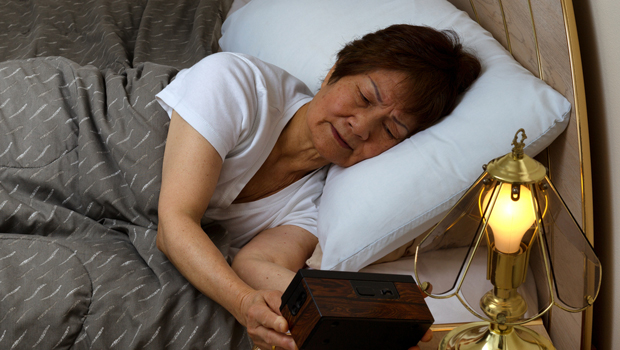Staying Up Late Can Increase Insulin Resistance

It’s good to keep a consistent bedtime if you want to keep your pancreas from working too hard, according to findings of a recent University of Pittsburgh study.
For the study, researchers wanted to know if there was a correlation between variability of bedtime and risk of insulin resistance. To test this, they tracked the sleep patterns and blood sugar levels of 370 middle-aged women. Researchers found that women who had a higher variability of bedtime had a higher risk of insulin resistance, according to a Healio report. That made the women with variable stages more likely to develop Type 2 diabetes or have Type 2 diabetes progress into more acute stages than women with consistent bedtimes.
“We examined…midlife women particularly because this group is at increased risk for developing health problems, such as diabetes, for the first time in their lives as their metabolism slows down and there’s transitioning through menopause,” said Briana Taylor, a graduate student at the University of Pittsburgh and lead author of the study, in an interview with Insulin Nation.
Taylor explained that the body works like a clock with a 24-hour cycle. Within this cycle, the body should be storing glucose during the day and using it while we sleep at night. During sleep, the body releases melatonin as darkness falls. This hormone both regulates the sleep cycle and sends a signal to the pancreas to curb insulin production. When insulin production is halted, glucose stored in the body is released. Variability in bedtime can lead to variability in the signals that regulate this process, said Taylor.
“The timing really matters here,” Taylor said. “If we have really late bedtimes, we’re delaying the time during which melatonin could be secreted and could be acting on this process of metabolic functioning.”
Other studies have shown a similar correlation between sleep timing and increased risk for obesity in children and adolescents.
You shouldn’t be too alarmed if you occasionally get to bed a half hour later than usual – the study focused on wide swings in sleep schedules, instead of small changes. All the same, if you can keep bedtime consistent, it might help your body better regulate blood sugar levels.
Want more news on Type 2 diabetes? Subscribe to our newsletter here.
Want more news on Type 2 diabetes? Subscribe to our newsletter here.




